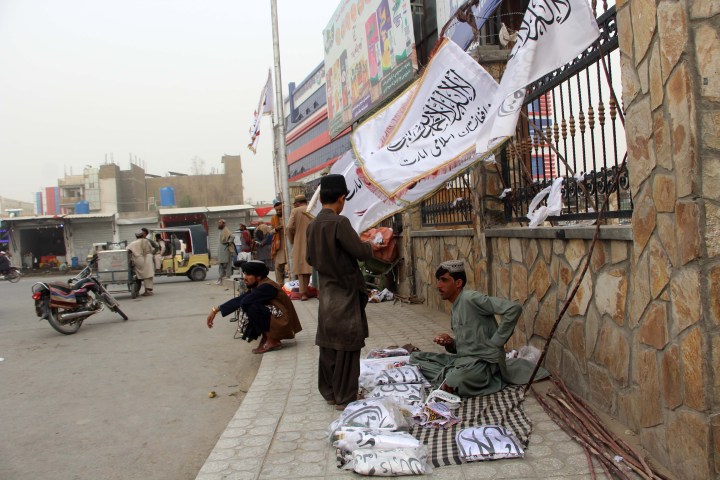Afghanistan
Taliban mark two years since return to power in Afghanistan

KABUL, Aug 15 (Reuters) - Afghanistan's Taliban on Tuesday marked the second anniversary of their return to power, celebrating their take-over of Kabul and the establishment of what they said was security throughout the country under an Islamic system.
After a lightning offensive as U.S.-led foreign forces were withdrawing after 20 years of inconclusive war, the Taliban entered the capital on Aug. 15, 2021, as the U.S.-backed president, Ashraf Ghani, fled and the Afghan security forces, set up with years of Western support, disintegrated.
“On the second anniversary of the conquest of Kabul, we would like to congratulate the mujahid (holy warrior) nation of Afghanistan and ask them to thank Almighty Allah for this great victory,” the spokesman for the Taliban, Zabihullah Mujahid, said in a statement.
Security was tight in the capital on Tuesday, which was declared a holiday, with soldiers stepping up checks.
Taliban parades were expected through the day and several departments, including the education ministry, held gatherings to celebrate.
“Now that overall security is ensured in the country, the entire territory of the country is managed under a single leadership, an Islamic system is in place and everything is explained from the angle of sharia,” Mujahid said.
Afghanistan is enjoying peace not seen in decades but the U.N. says there have, nevertheless, been dozens of attacks on civilians, some claimed by the Islamic State rivals of the Taliban.
For many women, who enjoyed extensive rights and freedoms during the two decades of rule by Western-backed governments, their plight has become dire since the return of the Taliban.
“It’s been two years since the Taliban took over in Afghanistan. Two years that upturned the lives of Afghan women and girls, their rights and futures,” Amina Mohammed, deputy secretary-general of the U.N., said in a statement.
Mujahid made no mention of the contentious issue of female education in his statement.
OBSTACLE TO RECOGNITION
Girls over the age of 12 have been mostly excluded from classes since the Taliban returned to power. For many Western governments, the ban is a major obstacle to any hope of formal recognition of the Taliban administration.
The Taliban, who say they respect rights in line with their interpretation of Islamic law, have also stopped most Afghan female staff from working at aid agencies, closed beauty salons, barred women from parks and curtailed travel for women in the absence of a male guardian.
Journalism, which also blossomed in the two decades of rule by Western-backed governments, has been significantly suppressed.
The detention of media workers and civil society activists, including prominent education advocate Matiullah Wesa, have raised the alarm of human rights groups.
The Taliban have not commented in detail on those issues but say their law enforcement and intelligence agencies investigate activities they consider suspicious to seek explanations.
On the positive side, the corruption that exploded as Western money poured in for years after the Taliban were ousted in 2001, has been reduced, according to the U.N. special representative.
There are also signs that a Taliban ban on narcotics cultivation has dramatically reduced poppy production in what has for years been the world’s biggest source of opium.
The Taliban will be hoping the progress will help bring foreign recognition and the lifting of sanctions, and the release of about $7 billion in central bank assets frozen in the U.S. Federal Reserve Bank of New York in 2021 after the Taliban took control, half of which was later transferred to a Swiss Trust.
A fall-off in development aid has seen job opportunities and gross domestic product shrink and the U.N. estimates more than two-thirds of the population need humanitarian aid to survive.
By Mohammad Yunus Yawar and Charlotte Greenfield
(Reporting by Mohammad Yunus Yawar in Kabul and Charlotte Greenfield in Islamabad; editing by Robert Birsel)



















Comments - Please login in order to comment.